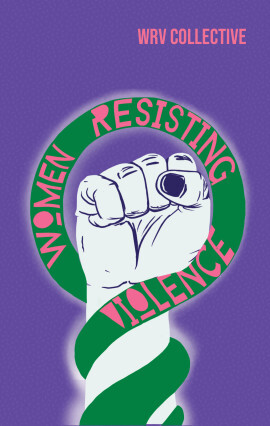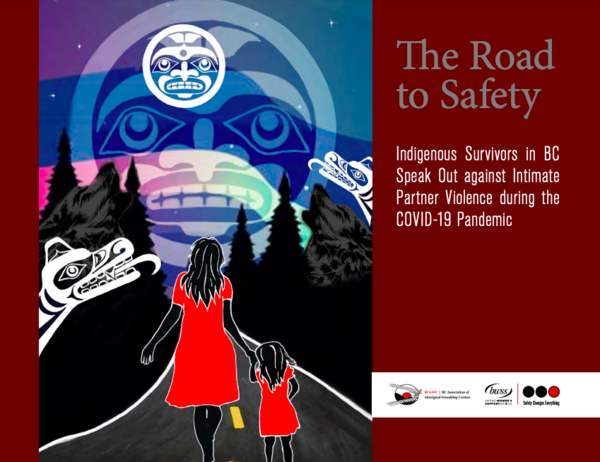Breadcrumbs
16 Days of Activism Against Gender-Based Violence
Day 1
Dalla Lana School of Public Health & Temerty Faculty of Medicine – Solidarity with Iran and the Elimination of Violence against Women
Read this message from the Temerty Faculty of Medicine and the Dalla Lana School of Public Health for the elimination of violence against women.
Day 2
Center for Women’s Global Leadership – 16 Days in Context
In 1991, the Center for Women’s Global Leadership launched the first 16 Days Campaign in collaboration with feminists from the Global North and the Global South who agreed on the pressing need to address violence against women as a key human rights issue. Each year from November 25 - December 10 we observe 16 Days Of Activism To End Violence Against Women. Check out this page to learn about the history of this movement against gender-based violence (GBV).
Day 3
Canadian Institutes of Health Research – COVID-19 Pandemic Guidelines for Mental Health Support of Racialized Women at Risk of Gender-based Violence Center for Women’s Global Leadership
Dr. Nazilla Khanlou studies social determinants of mental health among racialized women and girls exposed to GBV during the COVID-19 pandemic and identify emerging practices for detection and service provision for equity informed mental health promotion and care. In this resource, Dr. Nazilla Khanlou establishes best practices for supporting the mental health of racialized victims of GBV during the pandemic.

Day 4
Women Resisting Violence Collective – Women Resisting Violence: Voices & Experiences from Latin America
Women Resisting Violence: Voices & Experiences from Latin America was published on November 15, 2022 by Women Resisting Violence Collective. It contains case studies & interviews that highlight intersecting forms of GBV.
Day 5
Dr. Asha George and colleagues – Violence against female health workers is tip of iceberg of gender power imbalances
Violence against female health workers is a worldwide problem. In this analysis, Dr. Asha George and colleagues discuss gender power relations as the key to stopping violence against female workers in healthcare.
Day 6
Action Against Hunger – Podcasts: 16 Days of Activism Against Gender-Based Violence
The pandemic has caused an unnerving increase in violence against women and girls. Listen to these podcasts by Action Against Hunger's International Gender Unit where experts explore the links between the COVID-19 pandemic and gender-based violence.

Day 7
Battered Women's Support Services – The Road to Safety: Indigenous Survivors in BC Speak Out against Intimate Partner Violence during the COVID-19 Pandemic
This report covers issues pertaining to colonial violence, interpersonal violence, child abuse, residential schools, the Sixties Scoop, substance use, racist misogyny, and issues related to poverty in Indigenous women.
Day 8
Women's College Research Institute – Violence Against Older Women Learning Modules
The Women's College Research Institute focuses on the impact of violence on women’s health and the health system’s response to women’s needs – embracing a multidisciplinary view of health. The 5 part series learning module by Women's College Research Institute provides competing frameworks for violence against older women and how to respond and advocate for change.
Day 9
Medical Women’s International Association – The medical profession and violence against women
The Medical Women’s International Association is an international organization, made up of women physicians in more than 70 countries. In this paper, Dr. Kyung Ah Park and Dr. Shelley Ross shares the position of the Medical Women’s International Association in working against GBV.
Day 10
VAW Research – Adapting the violence against women systems response to the COVID-19 pandemic
The MARCO project by the VAW research group evaluates how local efforts responding to the COVID-19 pandemic serve people experiencing marginalization, and how these interventions can be improved. Read this report to learn more about adapting the violence against women systems response to the COVID-19 pandemic.
Day 11
VAW Learning Network & Knowledge Hub – Gender-Based Violence Through an Intersectional Lens
Watch these webinars to educate yourself on gender-based violence in BIPOC communities and the challenges faced during the COVID-19 pandemic. In the presentation by VAW Learning Network & Knowledge Hub, Monica Samuel provides a quick overview of the media’s continuation and perpetuation of sexual violence, highlighting the interrelationship of anti-black racism, colorism, fatphobia, and disability.
SickKids – Dialogues in Diversity: Women, Girls and Gender Considerations of a COVID-19 Response
This webinar by SickKids is one of the seven-part series in the EDI Implications of COVID-19 discussing the ways gender considerations should be included for an adequate and appropriate response to the COVID-19 pandemic.
Day 12
University of Toronto – Panel: Meaningful Global Action To End Gender-Based Violence
On December 6, the National Day of Remembrance and Action on Violence Against Women, U of T joins communities across Canada in remembering the 14 women killed in a devastating act of misogyny at the engineering school at Montreal’s École Polytechnique in 1989.
Day 13
BMC Women's Health Journal – Mapping the health systems response to violence against women: key learnings from five LMIC settings (2015–2020)
The documentation of the programmatic rollout of health systems response to violence against women is lacking in low and middle-income countries. This paper from the BMC Women's Health Journal shares model examples of the health systems response to violence against women across five low- and middle-income countries.
Day 14
Canadian Women’s Foundation – Facts and Statistics
The Canadian Women’s Foundation leads the movement of gender equality in Canada through funding, research, advocacy, and knowledge sharing. Check out this page from the Canadian Women's Foundation to learn some facts and statistics regarding gender-based violence in Canada.
Day 15
Strides Toronto – Resource
Check out these Toronto-based groups that offer support from counselling to peer support for those involved in or at risk of gender-based violence. Strides Toronto build strength and resilience with infants, children, youth and families through equitable, accessible, client-driven services, system leadership and advocacy.
METRAC – Resource
METRAC is another Toronto-based group that works with individuals, communities and institutions to change ideas, actions, and policies with the goal of ending violence against women and youth.
Day 16
United Nations - Human Rights Day
The 16 Days of Activism Against Gender-Based Violence ends with Human Rights Day, adopted in 1948 which aims to establish a common standard of living for all people. To date, the Universal Declaration of Human Rights is the most translated document in the world and is available in more than 500 languages.